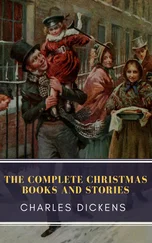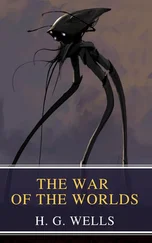Ros. From henceforth I will, coz, and devise sports. Let me see—what think you of falling in love?
Cel. Marry, I prithee do, to make sport withal. But love no man in good earnest, nor no further in sport neither, than with safety of a pure blush thou mayst in honor come off again.
Ros. What shall be our sport then?
Cel. Let us sit and mock the good huswife Fortune from her wheel, that her gifts may henceforth be bestow’d equally.
Ros. I would we could do so; for her benefits are mightily misplac’d, and the bountiful blind woman doth most mistake in her gifts to women.
Cel. ’Tis true, for those that she makes fair she scarce makes honest, and those that she makes honest she makes very ill-favoredly.
Ros. Nay, now thou goest from Fortune’s office to Nature’s. Fortune reigns in gifts of the world, not in the lineaments of Nature.
Enter Clown [Touchstone].
Cel. No; when Nature hath made a fair creature, may she not by Fortune fall into the fire? Though Nature hath given us wit to flout at Fortune, hath not Fortune sent in this fool to cut off the argument?
Ros. Indeed there is Fortune too hard for Nature, when Fortune makes Nature’s natural the cutter-off of Nature’s wit.
Cel. Peradventure this is not Fortune’s work neither, but Nature’s, who perceiveth our natural wits too dull to reason of such goddesses, [and] hath sent this natural for our whetstone; for always the dullness of the fool is the whetstone of the wits. How now, wit, whither wander you?
Touch. Mistress, you must come away to your father.
Cel. Were you made the messenger?
Touch. No, by mine honor, but I was bid to come for you.
Ros. Where learn’d you that oath, fool?
Touch. Of a certain knight, that swore by his honor they were good pancakes, and swore by his honor the mustard was naught. Now I’ll stand to it, the pancakes were naught, and the mustard was good, and yet was not the knight forsworn.
Cel. How prove you that, in the great heap of your knowledge?
Ros. Ay, marry, now unmuzzle your wisdom.
Touch. Stand you both forth now. Stroke your chins, and swear by your beards that I am a knave.
Cel. By our beards (if we had them) thou art.
Touch. By my knavery (if I had it) then I were. But if you swear by that that is not, you are not forsworn. No more was this knight, swearing by his honor, for he never had any; or if he had, he had sworn it away before ever he saw those pancakes or that mustard.
Cel. Prithee, who is’t that thou mean’st?
Touch. One that old Frederick, your father, loves.
[Cel.] My father’s love is enough to honor him enough. Speak no more of him, you’ll be whipt for taxation one of these days.
Touch. The more pity that fools may not speak wisely what wise men do foolishly.
Cel. By my troth, thou sayest true; for since the little wit that fools have was silenc’d, the little foolery that wise men have makes a great show. Here comes Monsieur [Le] Beau.
Enter Le Beau.
Ros. With his mouth full of news.
Cel. Which he will put on us, as pigeons feed their young.
Ros. Then shall we be news-cramm’d.
Cel. All the better; we shall be the more marketable. Bon jour, Monsieur Le Beau. What’s the news?
Le Beau. Fair princess, you have lost much good sport.
Cel. Sport! of what color?
Le Beau. What color, madam? How shall I answer you?
Ros. As wit and fortune will.
Touch. Or as the Destinies decrees.
Cel. Well said—that was laid on with a trowel.
Touch. Nay, if I keep not my rank—
Ros. Thou losest thy old smell.
Le Beau. You amaze me, ladies. I would have told you of good wrastling, which you have lost the sight of.
Ros. Yet tell us the manner of the wrastling.
Le Beau. I will tell you the beginning; and if it please your ladyships, you may see the end, for the best is yet to do, and here where you are, they are coming to perform it.
Cel. Well, the beginning, that is dead and buried.
Le Beau. There comes an old man and his three sons—
Cel. I could match this beginning with an old tale.
Le Beau. Three proper young men, of excellent growth and presence.
Ros. With bills on their necks, “Be it known unto all men by these presents.”
Le Beau. The eldest of the three wrastled with Charles, the Duke’s wrastler, which Charles in a moment threw him, and broke three of his ribs, that there is little hope of life in him. So he serv’d the second, and so the third. Yonder they lie, the poor old man, their father, making such pitiful dole over them that all the beholders take his part with weeping.
Ros. Alas!
Touch. But what is the sport, monsieur, that the ladies have lost?
Le Beau. Why, this that I speak of.
Touch. Thus men may grow wiser every day. It is the first time that ever I heard breaking of ribs was sport for ladies.
Cel. Or I, I promise thee.
Ros. But is there any else longs to see this broken music in his sides? Is there yet another dotes upon rib-breaking? Shall we see this wrastling, cousin?
Le Beau. You must if you stay here, for here is the place appointed for the wrastling, and they are ready to perform it.
Cel. Yonder sure they are coming. Let us now stay and see it.
Flourish. Enter Duke [Frederick], Lords, Orlando, Charles, and Attendants.
Duke F. Come on. Since the youth will not be entreated, his own peril on his forwardness.
Ros. Is yonder the man?
Le Beau. Even he, madam.
Cel. Alas, he is too young! yet he looks successfully.
Duke F. How now, daughter and cousin? are you crept hither to see the wrastling?
Ros. Ay, my liege, so please you give us leave.
Duke F. You will take little delight in it, I can tell you, there is such odds in the man. In pity of the challenger’s youth I would fain dissuade him, but he will not be entreated. Speak to him, ladies, see if you can move him.
Cel. Call him hither, good Monsieur Le Beau.
Duke F. Do so; I’ll not be by.
Le Beau. Monsieur the challenger, the princess calls for you.
Orl. I attend them with all respect and duty.
Ros. Young man, have you challeng’d Charles the wrastler?
Orl. No, fair princess; he is the general challenger. I come but in, as others do, to try with him the strength of my youth.
Cel. Young gentleman, your spirits are too bold for your years. You have seen cruel proof of this man’s strength. If you saw yourself with your eyes, or knew yourself with your judgment, the fear of your adventure would counsel you to a more equal enterprise. We pray you for your own sake to embrace your own safety, and give over this attempt.
Ros. Do, young sir, your reputation shall not therefore be mispris’d. We will make it our suit to the Duke that the wrastling might not go forward.
Orl. I beseech you, punish me not with your hard thoughts, wherein I confess me much guilty to deny so fair and excellent ladies any thing. But let your fair eyes and gentle wishes go with me to my trial; wherein if I be foil’d, there is but one sham’d that was never gracious; if kill’d, but one dead that is willing to be so. I shall do my friends no wrong, for I have none to lament me; the world no injury, for in it I have nothing. Only in the world I fill up a place, which may be better supplied when I have made it empty.
Читать дальше












![Уильям Шекспир - The Works of William Shakespeare [Cambridge Edition] [Vol. 1 of 9]](/books/746589/uilyam-shekspir-the-works-of-william-shakespeare-c-thumb.webp)